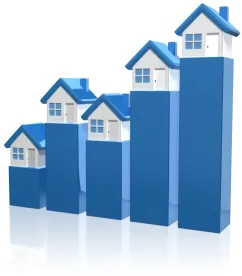Understanding the Homes (Fitness for Human Habitation) Act 2018
The Homes (Fitness for Human Habitation) Act 2018 (the Act) came into force on 20 March 2019 (the Enforcement Date) and amends the existing legislation contained within sections 8 and 10 of the Landlord and Tenant Act 1985 (the LTA 1985) by introducing new requirements which impose an ongoing "fitness for human habitation" obligation on landlords of residential properties. If these requirements are not met, then tenants have the right to bring a claim against the landlord for breach of contract.
The Act applies to all social and private sector landlords (or agents acting on their behalf), who must take steps to ensure that any rented property is fit for human habitation at the beginning, and throughout the duration of the tenancy period.
Prior to the enforcement of the Act, under the LTA 1985, landlords were only liable for repairing items that were actually in disrepair.For instance, a landlord would not have previously been obliged to repair inadequate ventilation that was not in disrepair, however this may now fall within the Act. Tenants can now take action in respect of problems and defects like mould, damp, fire risks and inadequate heating.
Who It Applies To?
The Act applies to a) any residential leases of less than 7 years created on or after the Enforcement Date (including a renewal of an existing tenancy on or after the Enforcement Date); b) any fixed term tenancy which becomes periodic on or after the Enforcement Date; and c) any existing periodic tenancies, however a 12-month grace period applies.
What Is "Fit for Human Habitation"?
Section 10 LTA 1985 did not explicitly define "fit for human habitation"; however, in determining whether a dwelling is fit for human habitation, regard should be given to the following matters:
- repair, stability, freedom from damp, internal arrangement, natural lighting, ventilation, water supply, drainage and sanitary conveniences, facilities for preparation and cooking of food and for the disposal of waste water, in relation to a dwelling in England, any prescribed hazard; and
- the house shall be regarded as unfit for human habitation if, and only if, it is so far defective in one or more of those matters that it is not reasonably suitable for occupation in that condition.
Exclusions
Although the Act does not require tenants to serve notice of a breach, it is likely that the landlord's liability under the Act will only arise once it has received notice of the tenant's complaint. However, this point will need to be clarified by the courts. There are various exceptions where the landlord won't be held liable, for example, a) any breach of the tenant's duty to act in a tenant like manner; b) any breach relating to works to rebuild or reinstate the dwelling in the case of destruction or damage by fire, storm, flood or other inevitable accident; c) any works to anything belonging to the tenant; d) any works, which if carried out, would put the landlord in breach of any obligation imposed by legislation; and e) any works requiring the consent of a superior landlord or other third party (e.g., a lender) where consent has not been obtained following reasonable endeavours to obtain it.
The parties are not able to contract out of the Act.







 />i
/>i

